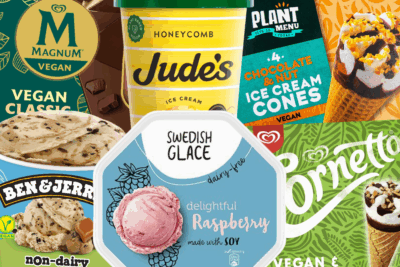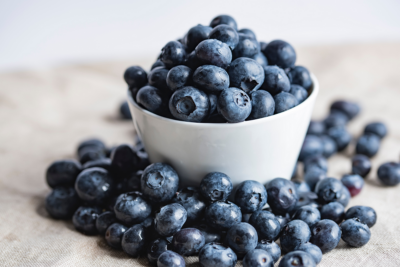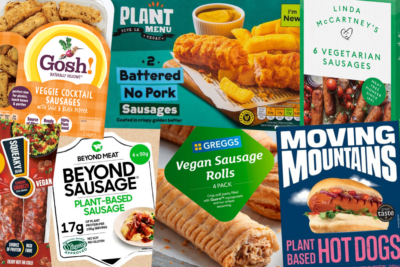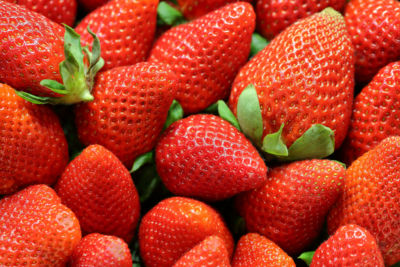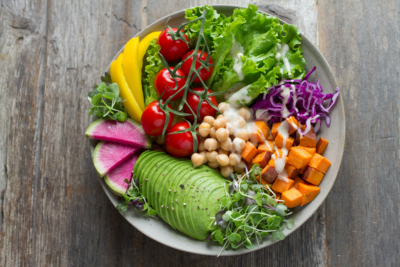A comprehensive new study1 by Oxford University has shown that a vegan diet has a significantly lower environmental impact than meat-heavy diets.
The link between animal agriculture and climate change is well-documented, but Oxford University’s latest research has been praised by scientists for examining the difference between high-meat, low-meat and vegan diets in such granular detail.2
The study surveyed 55,000 people in the UK who eat different diets and used data from 38,000 farms in 119 countries to determine the impact of how certain foods are produced and where they are produced.
Researchers looked at the following categories:
- High-meat diets – more than 100g of meat daily (equivalent to a big burger)
- Low-meat diets – 50g or less daily (equates to two chipolata sausages)
- Fish eaters
- Vegetarians and vegans
As well as CO2 emissions, the study researched the effects of different diets on land use, water use, water pollution and species loss. High-meat diets were found to negatively impact the environment more than vegan diets in all areas.
Carbon Dioxide Emissions
According to the study, a high-meat diet produces 10.24 kg of CO2 per person each day, while a low-meat diet produces 5.37 kg. Vegan diets further reduce these emissions to 2.47 kg per day, the lowest of all diets included in the study.
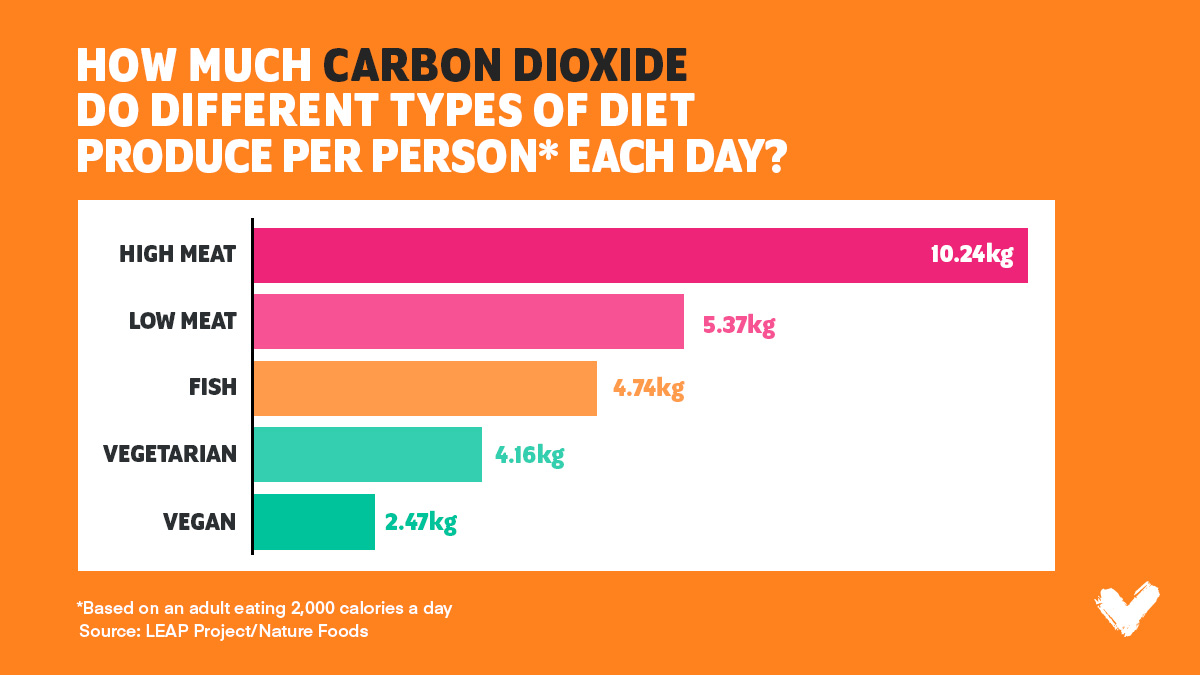
Land Use
Researchers calculated how much land is needed to support different diets each day. High-meat diets were found to require significantly more land than other diets (16.78 sq ) and almost four times the amount required for vegan diets (4.37 sq m).
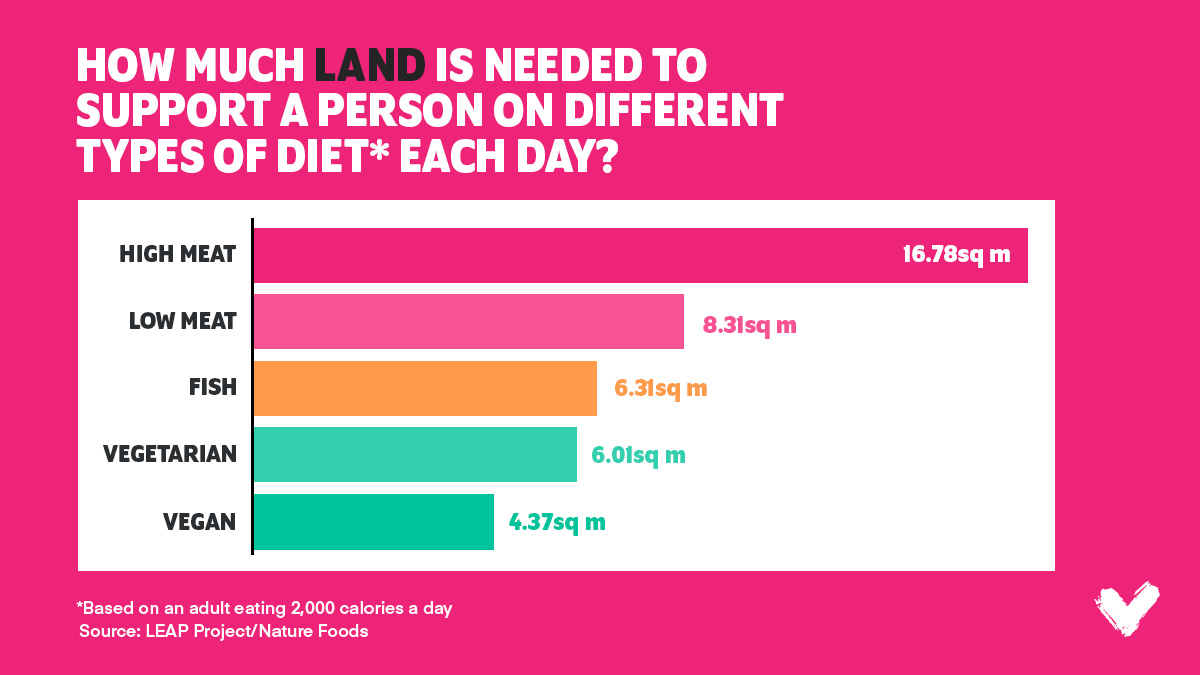
Water Use
High-meat diets also require more water than other diets, the research shows. A diet high in meat requires 890 litres per person each day, almost double the amount used to produce food eaten in a vegan diet.
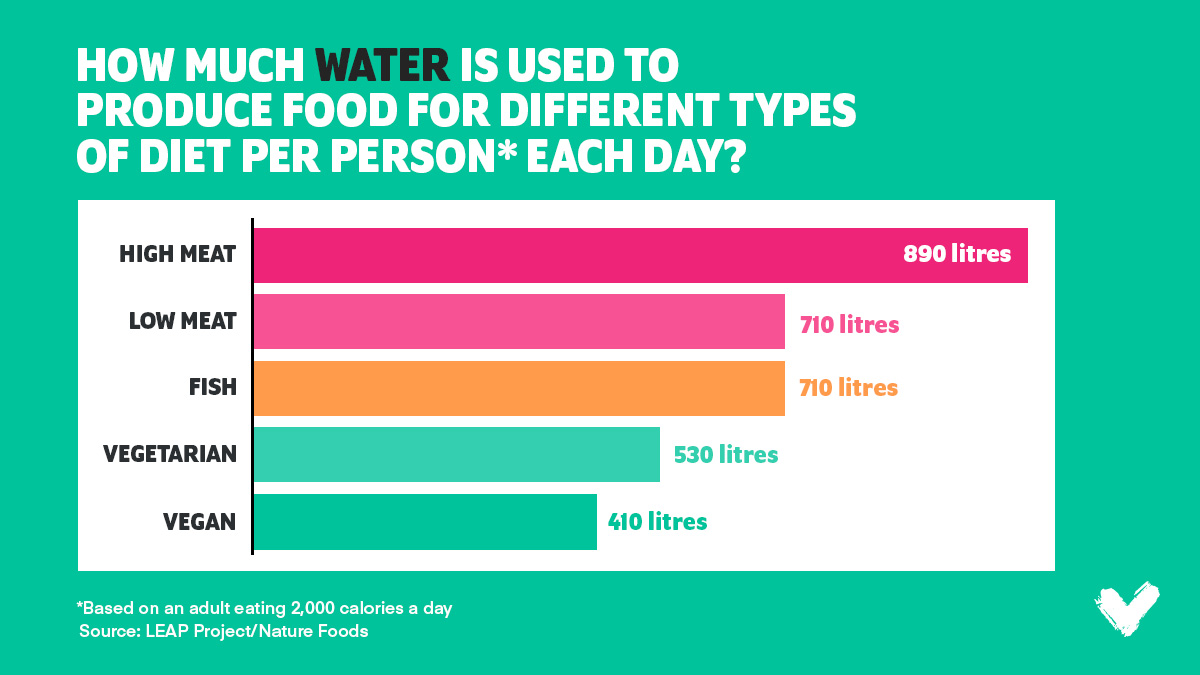
Can a vegan diet help the planet?
Oxford University’s findings underscore the importance of re-evaluating our dietary choices to reduce our environmental impact. The UK government has pledged to reduce meat consumption by 30% to meet its net-zero targets3, yet there is a lack of commitment from politicians to actually promote a shift towards eating plant-based.4 A spokesperson from Defra responded to Oxford University’s latest research, stating that ”people should make their own decisions around the food they eat.”
Professor Susan Jebb, nutrition scientist at Oxford University and head of the Food Standards Agency, told BBC News: “In the UK it is still not accepted that we are eating an amount of meat which is inconsistent with our environmental goals…In the case of obesity people know they shouldn’t be eating confectionary cakes and biscuits. They may not want to hear it, but they know it to be true. With meat they are not wholly convinced.”
It is clear that individual and collective action is needed to prevent further global heating. We can all play a role in building a better future by eating more plant-based meals. To get started, why not try vegan for 31 days with Veganuary? We’ll send you a celebrity e-cookbook, meal plans, daily recipes and tips straight to your inbox. It’s free!
References
1) Scarborough, P. et al. (2023) Vegans, vegetarians, fish-eaters and meat-eaters in the UK show Discrepant Environmental impacts, Nature News. Available at: https://www.nature.com/articles/s43016-023-00795-w (Accessed: 23 August 2023).
2) Ghosh, P. (2023) Eating less meat ‘like taking 8m cars off road’, BBC News. Available at: https://www.bbc.co.uk/news/science-environment-66238584 (Accessed: 23 August 2023).
3) National Food Strategy (2021) National Food Strategy. Available at: https://www.nationalfoodstrategy.org/wp-content/uploads/2021/07/National-Food-Strategy-The-Plan.pdf (Accessed: 23 August 2023).
4) Laville, S. (2021) UK meat tax and frequent-flyer levy proposals briefly published then deleted, The Guardian. Available at: https://www.theguardian.com/environment/2021/oct/20/meat-tax-and-frequent-flyer-levy-advice-dropped-from-uk-net-zero-strategy (Accessed: 23 August 2023).




